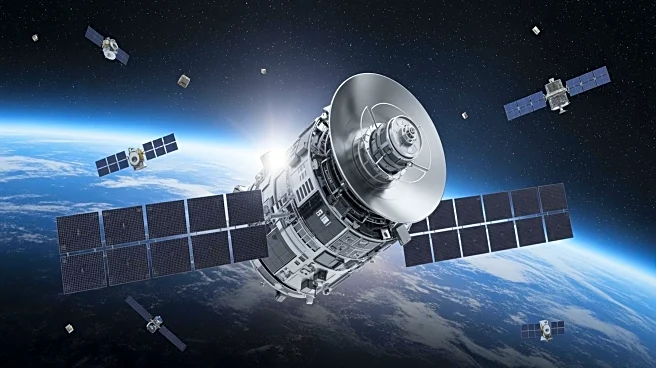What's Happening?
Airbus, Leonardo, and Thales have announced plans to merge certain space operations, forming a new satellite venture expected to launch in 2027. This strategic move aims to consolidate satellite manufacturing capabilities in response to significant market
shifts. Airbus will hold a 35% stake in the new entity, while Leonardo and Thales will each hold 32.5%. The merger will integrate Airbus' Space Systems and Space Digital operations, Leonardo's Space Division and Telespazio stake, and Thales' holdings in Thales Alenia Space, Telespazio, and Thales SESO. The companies have signed a memorandum of understanding, with balancing payments to be settled upon deal closure. The merger excludes space launch activities. The collaboration seeks to address declining demand for large telecommunications satellites and intense competition in other market segments. Despite the downturn, the market is showing signs of recovery, with Thales securing several large satellite contracts this year.
Why It's Important?
This merger is significant as it represents a major consolidation in the European satellite industry, potentially enhancing the competitive edge of Airbus, Leonardo, and Thales against global players like Elon Musk's Starlink. The new venture is expected to employ 25,000 staff and generate approximately €6.5 billion in sales, based on 2024 figures. The merger aims to achieve annual synergies valued at mid-triple-digit millions of euros within five years, through reduced investment duplication, improved program management, and joint purchasing. This consolidation could lead to increased innovation and growth in the satellite market, driven by European government investments in security. The merger's success could influence global satellite market dynamics, potentially affecting U.S. companies involved in similar sectors.
What's Next?
The companies must consult with labor and obtain regulatory approvals, including antitrust clearances, which could be challenging and time-consuming. Competitors have expressed concerns about the merger, but may not object if supply relationships remain intact. The companies will need to manage the integration of their respective contributions and address any antitrust issues. The merger's completion is anticipated in 2027, with significant growth expected in the first full year of operations in 2028. The outcome of regulatory reviews and competitor reactions will be crucial in determining the merger's timeline and success.
















